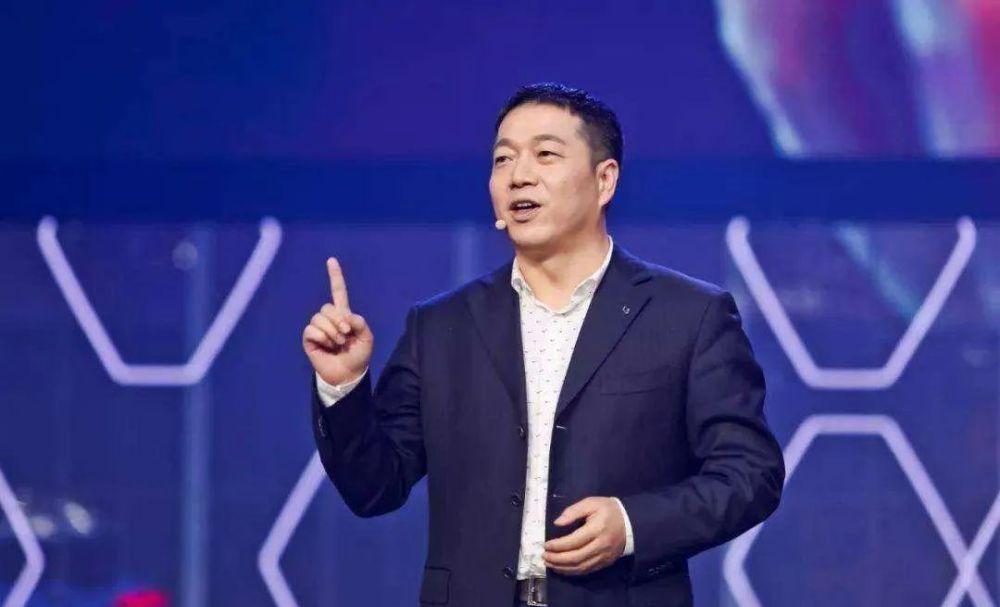01
Li Shufu stepped down, and Zhou Jianqun took over as chairman of Geely New Energy Commercial Vehicle
Recently, Zhejiang Geely New Energy Commercial Vehicle Group Co., Ltd. underwent industrial and commercial changes, Li Shufu withdrew from the chairman position, and general manager Zhou Jianqun concurrently served as chairman. At the same time, Yang Jian and An Conghui respectively withdrew from their directors and added Fan Xianjun and Wang Xinggui as directors.
According to public information, Zhejiang Geely New Energy Commercial Vehicle Group Co., Ltd. was established in February 2016 with a registered capital of 500 million yuan, wholly owned by Zhejiang Geely Holding Group Co., Ltd., and the actual controller is Li Shufu. Headquartered in Hangzhou, it is responsible for the overall organization and group management and operation of commercial vehicle product technology research and development, production procurement and marketing business, and has sub-brands including remote cars, Hanma Technology, and Ouling Motors.
In the past two years, with the rapid development of new energy vehicles, Geely has continuously increased the field of new energy commercial vehicles. In July last year, Geely Commercial Vehicle Group acquired a 15.24% stake in commercial vehicle company Valin Singma, becoming the controlling shareholder of the latter. Prior to this, Geely had invested 7 billion yuan in the construction of new energy commercial vehicle research and development and production projects, and built an annual output of 100,000 new energy commercial vehicles and 50,000 gas engines R & D and production base.
It is worth mentioning that since the beginning of this year, Li Shufu has also withdrawn from the director of Beichen Automobile (Shanghai) Co., Ltd. and the legal representative of Geely Technology Group Co., Ltd.
02
Hong Hao has offered to resign, and Baoneng responds "truthfully"
On December 13, there were media reports that Hong Hao, vice president of Baoneng Automobile Group, had formally proposed his resignation to the company and had recently left Baoneng. Subsequently, some media said that they had received a positive response from Baoneng.
In June this year, Baoneng Group announced that Hong Hao, former vice president and director of the marketing and sales department of Dongfeng Renault Automobile Co., Ltd., officially joined Baoneng Automobile as the vice president of Baoneng Automobile Group Co., Ltd., and was fully responsible for the marketing of Baoneng Automobile's brands. Nowadays, Hong Hao has proposed to leave Baoneng Automobile less than half a year ago, and the industry speculates or is related to Baoneng's management model.

Since Baoneng entered the automotive industry in 2017, many senior executives such as Li Feng, Cai Jianjun, Xu Jianming, and Hu Xindong have been suspended and removed from their posts. These people in Baoneng can be as long as a year, as short as half a year, or even only two or three months of detention, and they have become hurried visitors.
At present, in the first three quarters, the total sales volume of Qoros Automobile in the domestic market is 4893 vehicles, the average monthly sales volume is only 542 vehicles, as an independent brand with a main sales model of 100,000-level products, the average monthly sales volume is only 542 vehicles, which is obviously unable to support Qoros as an automobile OEM to continue to survive and develop. What is even more difficult is that according to sales statistics, the sales volume of July, August and September for three consecutive months is zero, which can be said to be in a completely stagnant state.
03
Former Nissan CEO Ghosn slammed Nissan for electrifying too slowly
On December 13, according to Japanese media reports, former Nissan Motor Chairman Carlos Ghosn said in a meeting that Nissan's current transformation speed is too slow and its electric vehicle transformation plan is too cautious.
Ghosn said new players in the industry, including Tesla and electric car manufacturers from China, have an advantage over traditional car companies. He also warned that established car companies such as Nissan must speed up to remain competitive in a rapidly changing environment.
As one of the early companies to develop pure electric vehicles, Nissan introduced the LEAF to the market at the end of 2010, and achieved sales of nearly 500,000 units worldwide in the following years. However, with Ghosn's departure, along with LEAF, Nissan's electrification plan was shelved.
It was not until November 29 this year that Nissan unveiled the Nissan Ambition 2030 that the future-oriented electrification transformation strategy was redefined. As the core of this strategy, Nissan plans to invest 2 trillion yen in the next five years to accelerate the layout of electric drives and technological innovation. According to this strategy, in the next five years, Nissan will launch 20 pure electric models and models equipped with Nissan e-POWER technology; by fiscal 2030, 23 electric models will be launched, including 15 pure electric models, and Nissan and Infiniti brand electric models will account for more than 50%.
In the industry's view, to a certain extent, Ghosn has not "wronged" Nissan - compared with Toyota and Honda, which are also Japanese brands, Nissan's plan is not only launched late, the investment scale is small, and even compared with the larger Toyota is more conservative.
Write | Water miao
Edit the | Respect for the distance